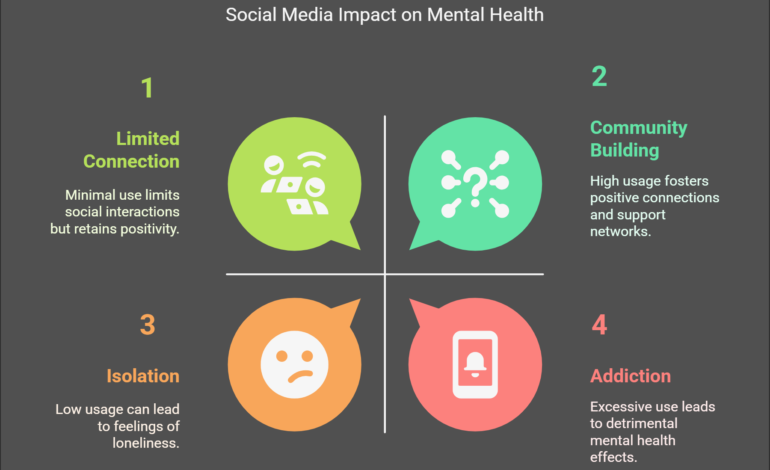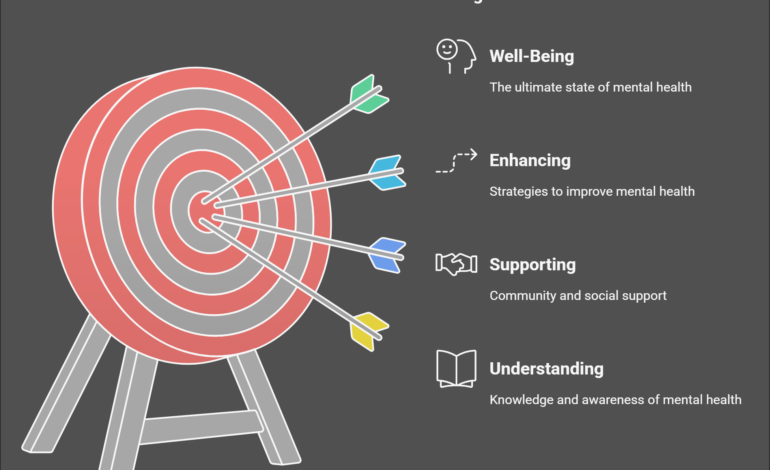how does social media affect mental health

What is the impact of social media on mental health?
“In today’s digital age, social media platforms like Facebook, Instagram, TikTok, and Twitter have become integral parts of our daily lives. They offer opportunities to connect with friends, share experiences, and access information. However, alongside these benefits, there are growing concerns about how does social media affect mental health. Understanding this relationship is crucial for maintaining a healthy balance between online engagement and well-being.
The Positive Aspects of Social Media
Before delving into the potential negative effects, it’s important to acknowledge the positive aspects of social media:
- Connection and Community: Social media enables users to stay connected with friends and family, fostering a sense of belonging. It also allows individuals to join communities with shared interests, providing support and camaraderie.
- Information and Awareness: Platforms serve as valuable sources of information, raising awareness about various issues, including you must know how does social media affect mental health. They can be instrumental in disseminating educational content and resources.
- Self-Expression and Creativity: Users have the opportunity to express themselves creatively through posts, videos, and art, which can be fulfilling and boost self-esteem.
The Negative Impact of Social Media on Mental Health
While there are benefits, excessive or unmoderated use of social media can lead to several mental health challenges:
1. Increased Risk of Depression and Anxiety
Studies have found a significant association between heavy social media use and increased risks of depression and anxiety. For instance, a systematic review indicated that the use of social networking sites is linked to a higher risk of depression, anxiety, and psychological distress. The Annie E. Casey FoundationStanford Law School
The constant exposure to curated images and posts can lead individuals to make unfavorable comparisons, fostering feelings of inadequacy and low self-esteem. This phenomenon is particularly pronounced among adolescents and young adults. UC Davis Health
2. Sleep Disruption
Engaging with social media, especially during the evening, can disrupt sleep patterns. The blue light emitted by screens interferes with the production of melatonin, the hormone responsible for regulating sleep. Additionally, the stimulating content can make it difficult to unwind, leading to insufficient or poor-quality sleep, which in turn affects mood and cognitive function.
3. Cyberbullying and Online Harassment
The online environment can sometimes be hostile, with individuals facing cyberbullying and harassment. Unlike traditional bullying, online harassment can be relentless, with harmful content being shared rapidly and widely. This exposure can lead to emotional distress, anxiety, and in severe cases, self-harm.
4. Social Comparison and Low Self-Esteem
Social media platforms often portray idealized images and lifestyles, leading users to compare themselves unfavorably. This constant comparison can result in feelings of inadequacy and low self-esteem, highlighting how does social media affects mental health. Research has shown that such social comparisons on platforms like Instagram can contribute to depressive symptoms. Wikipedia
5. Fear of Missing Out (FOMO)
Seeing posts about events, gatherings, or experiences that one is not part of can lead to FOMO, a feeling of anxiety over missing out. This sentiment can cause dissatisfaction with one’s own life and contribute to feelings of loneliness and depression.
6. Addiction and Time Wasting
The design of social media platforms encourages prolonged use through features like infinite scrolling and constant notifications. This can lead to addictive behaviors, where users feel compelled to check their feeds frequently, often at the expense of real-life interactions and responsibilities.
7. Distorted Perception of Reality
The content shared on social media is often curated, highlighting only the positive aspects of users’ lives. This selective sharing can create a distorted perception of reality, making others feel that their own lives are less exciting or fulfilling in comparison.
Mitigating the Negative Effects
While it’s challenging to completely avoid social media, there are strategies to mitigate its adverse effects on mental health:
- Set Time Limits: Allocate specific times for social media use and stick to them to prevent excessive engagement.
- Curate Your Feed: Follow accounts that promote positivity and unfollow or mute those that induce negative feelings.
- Engage in Offline Activities: Balance online time with offline activities like hobbies, exercise, and face-to-face interactions.New York Post
- Be Mindful of Content: Be critical of the content consumed and recognize that not everything online reflects reality.
- Seek Professional Help if Needed: If social media use is significantly impacting mental health, consider speaking with a mental health professional.
Conclusion
Social media is a double-edged sword; it offers opportunities for connection and information but also poses risks to mental health. Being mindful of how we engage with these platforms is essential. By understanding the potential impacts and implementing strategies to manage our online presence, we can harness the benefits of social media while safeguarding our mental well-being.
Note: For more detailed information on the effects of social media on mental health, you can refer to the Wikipedia article on Digital media use and mental health.Wikipedia








1 Comment
[…] Social media platforms are designed to keep us engaged. With endless streams of content, notifications, likes, and comments, they tap into the same pleasure centers in our brains that make other forms of addiction, like gambling or shopping, so hard to resist. The more we interact, the more our brains crave that “reward,” creating a vicious cycle that’s hard to break. To learn more about how social media affects mental health, check out this article on Global Lens Hub. […]